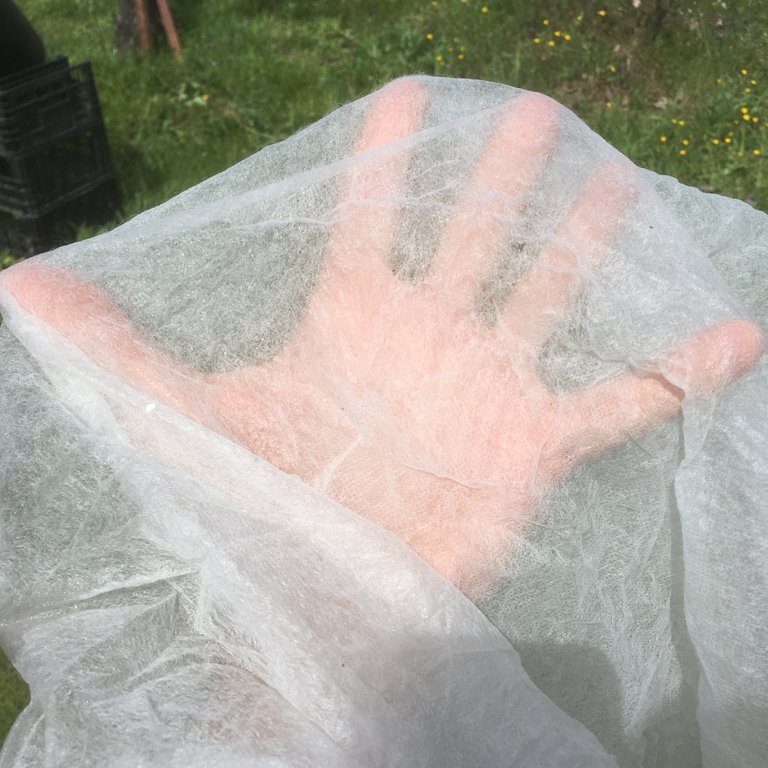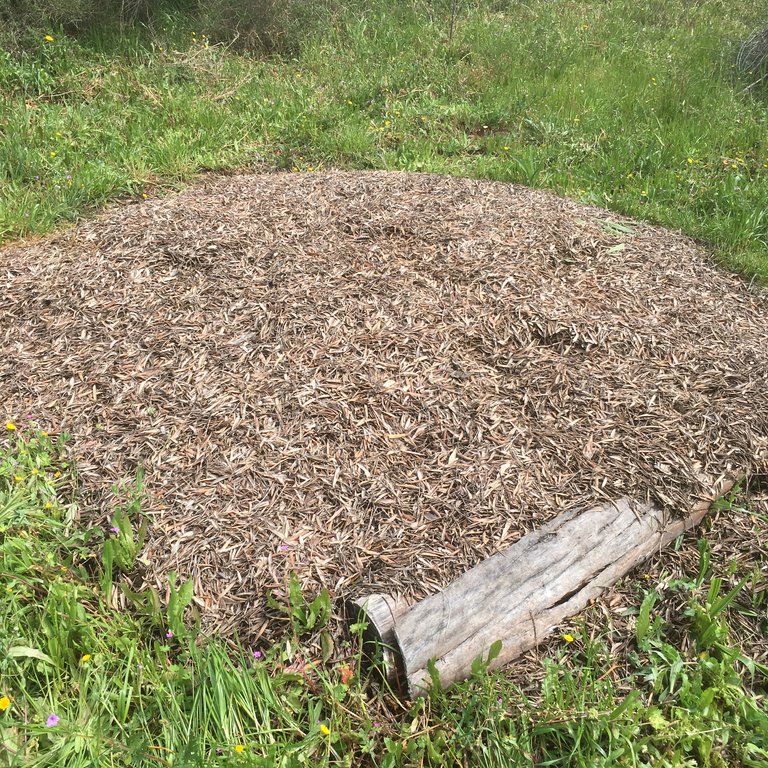While we can not protect our gardens completely from damage from the elements, there are many things we can do to minimize the impacts.
hail
hail is the biggest threat in our location and the worst hail storms correspond to the new growth in early spring.
since we grow our nursery outdoors and not in a greenhouse, our plants are exposed almost completely save the little protection provided by the large oak over the nursery and an olive tree.
the timing of hail can be devastating.
early hail, while no new leaves are present is not that bad as stalks are usually flexible and strong.
later hails can destroy months worth of leaf growth in seconds.
this is especially painful when it comes to annual plants that will not recover from it in the current season.
what we do to prevent the impacts of hail is prayer 🙏
frost

frost is our biggest cause of damage each year no matter how prepared and prayed we are.
Electroculture antennas like the one above (and another in the background), help plants withstand frosts better and actually survive to later recover and continue growing.
these simple structures are cheap and easy to make and year after year we see their benefits over smaller beds.

another solution is the above thermal membrane we use for punctually wrap specific plants.
it is cheap and can be used to cover beds as well.
it does help but it has some downsides to it.
it tends to become a sail in high winds and put a lot of pressure on the plant within.
and also, if applied directly over the plant, it will still suffer damage where the membrane touches the branches.
to avoid this, it is advisable to stretch over a structure built around the plant for that purpose.

Mulch is one of the best ways to protect, especially root systems from frosts.
in some cases "perennials" that suffer too much from cold die off in winter to return in spring.
covering their spot helps protecting their roots.
we also put mulch around trees and smaller plants as a way to feed them as it decomposes and protect their bases from rodents and grass.
almost anything can be used as mulch. even stones !
but, we prefer the organic material that also serves as food for the plants mulched.
freak frosts
we get very late frosts on our farm, as late as the last week of April.
we´ve learned the hard way that nothing is being planted out before May. that plays against us in the form of a shorter growth season.
also, having had more exotic plants before, we have experienced a very severe dry winter (overcast means less frosts!) where temperatures dropped to about 7 below zero centigrade at night for about a week straight.
that killed pretty much everything that was not full on hardy and taught us an important lesson.
ever since we work with local and hardy only plants that will survive pretty much anything nature has in store for them.
lastly, a word about lemon trees in Portugal.
traditionally, lemon trees (which are frost sensitive), were planted along side the south wall of the house.
in the winter months, when the sun is low, it heats the wall and this little warmth is radiated back at night, hence helping lemon trees to survive the winter frosts.
old observation based common sense. priceless 🌱
thank you all for stopping by 🙏
wishing us all a peaceful rest of the weekend.
published at 13:13

Sorry I have taken so long to comment. I haven't been in wifi as I'm away for a bit in the wilderness! If I haven't up voted with Hive Garden it might be low on Vp and I'll make it up to you when I'm home.
I really appreciate you entering the challenge as the more people who do, the more others are encouraged to share their garden stories.
Frost always gets me... You get lulled into a false sense of spring and plant things and next minute your plants are dead!!!
No worries !
enjoy the wilderness 🌱
yeh, frost gets me every time.